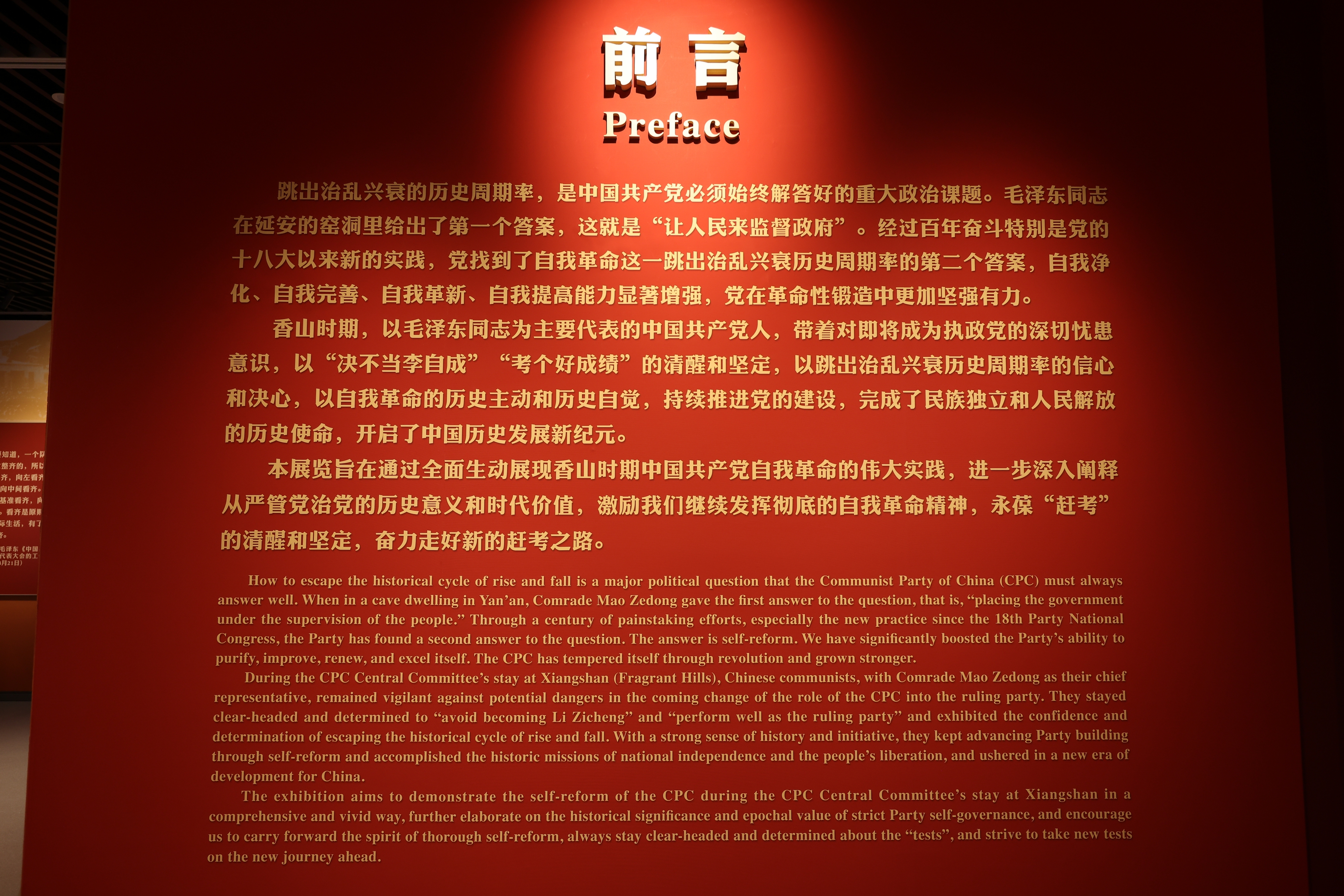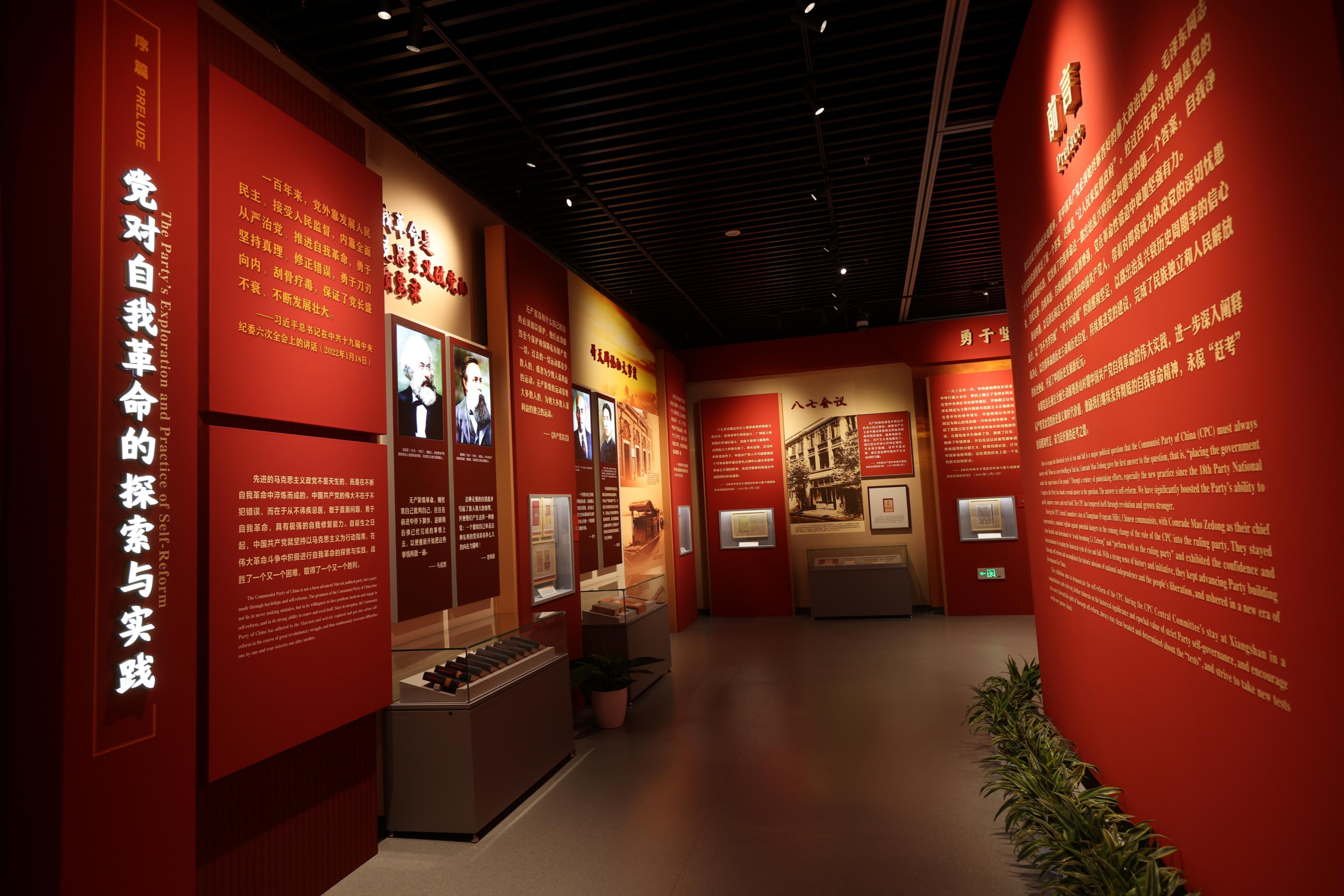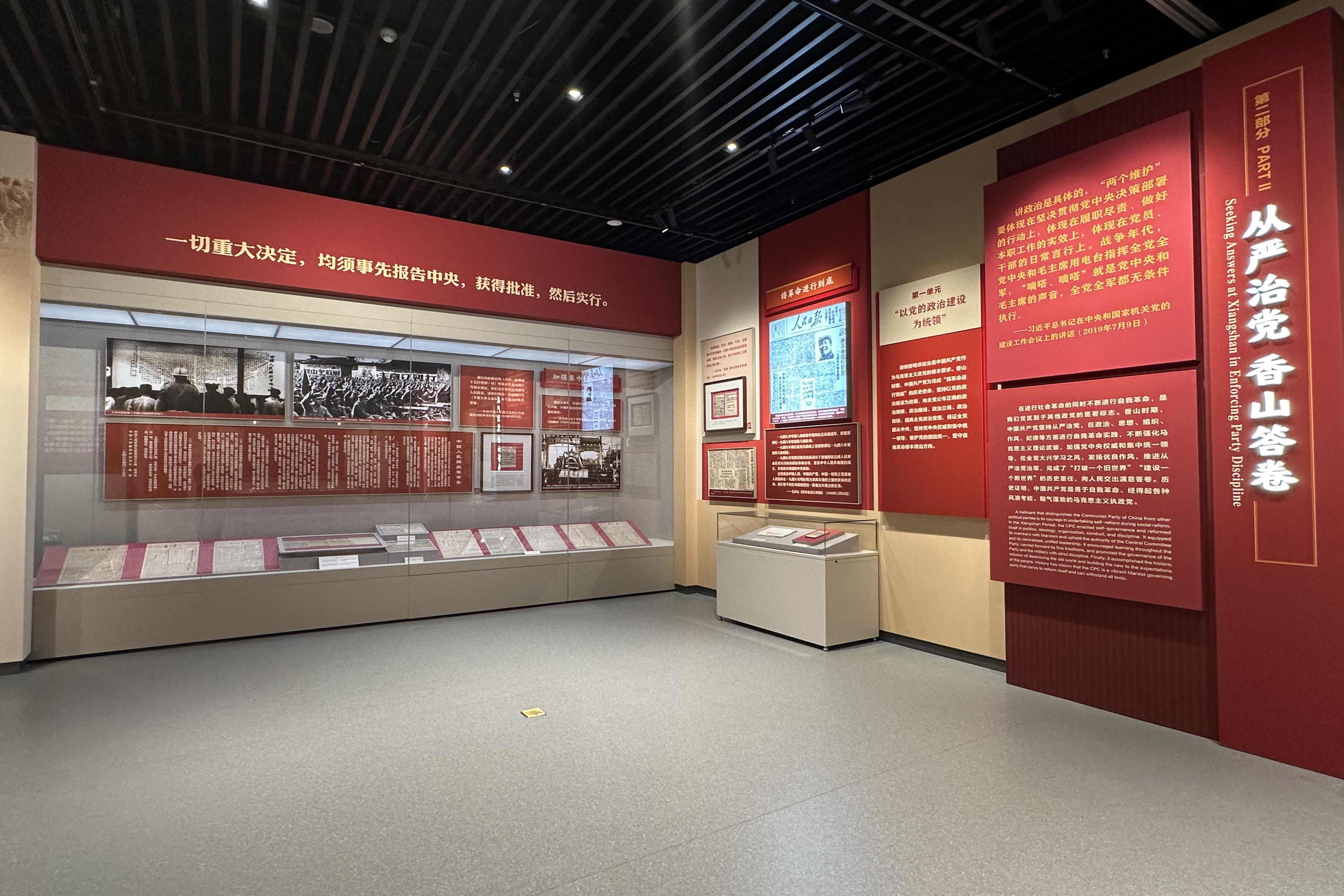Preface
How to escape the historical cycle of rise and fall is a major
political question that the Communist Party of China (CPC) must always answer
well. When in a cave dwelling in Yan’an, Comrade Mao Zedong gave the first
answer to the question, that is, “placing the government under the supervision
of the people.” Through a century of painstaking efforts, especially the new
practice since the 18th Party National Congress, the Party has found a second
answer to the question. The answer is self-reform. We have significantly
boosted the Party’s ability to purify, improve, renew, and excel itself. The
CPC has tempered itself through revolution and grown stronger.
During the CPC Central Committee’s stay at Xiangshan (Fragrant
Hills), Chinese communists, with Comrade Mao Zedong as their chief
representative, remained vigilant against potential dangers in the coming change
of the role of the CPC into the ruling party. They stayed clear-headed and
determined to “avoid becoming Li Zicheng” and “perform well as the ruling
party” and exhibited the confidence and determination of escaping the
historical cycle of rise and fall. With a strong sense of history and
initiative, they kept advancing Party building through self-reform and
accomplished the historic missions of national independence and the people’s
liberation, and ushered in a new era of development for China.
The exhibition aims to demonstrate the self-reform of the CPC during the CPC Central Committee’s stay at Xiangshan in a comprehensive and vivid way, further elaborate on the historical significance and epochal value of strict Party self-governance, and encourage us to carry forward the spirit of thorough self-reform, always stay clear-headed and determined about the “tests”, and strive to take new tests on the new journey ahead.

PRELUDE The Party’s Exploration and Practice of Self-Reform
The Communist Party of China is not a born advanced Marxist political party, but a party made through hardships and self-reforms. The greatness of the Communist Party of China does not lie in never making mistakes, but in its willingness to face problems head-on and engage in self-reform, and in its strong ability to renew and excel itself. Since its inception, the Communist Party of China has adhered to the Marxism and actively explored and put into action self-reform in the course of great revolutionary struggle, and thus continuously overcome difficulties one by one and won victories one after another.

PART I Establishing Rules Before the Test of Entering Beijing
Self-reform is the historical experience of the Party's endeavors over the past century. On the eve of the national victory in the New Democratic Revolution, Chinese communists exhibited the courage to carry out self-reform. In March 1949, Mao Zedong put forward the important thought of "two musts"---that is, we must remain modest and prudent and guard against an arrogant and rash work style, and we must continue to live plainly and work hard---at the Second Plenary Session of the Seventh Central Committee. After the Second Plenary Session of the Seventh Central Committee, Mao Zedong led the Chinese Communists to reflect on the question of how to escape the historical cycle of rise and demonstrated historical vigilance to the profound connotation. Sober-minded and resolute, they established the rules to face up to the major test of the founding of the People’s Republic of China.

PART II Seeking Answers at Xiangshan in Enforcing Party Discipline
A hallmark that distinguishes the Communist Party of China from other political parties is its courage in undertaking self-reform during social reform. In the Xiangshan Period, the CPC enacted self-governance and reformed itself in politics, ideology, organization, conduct, and discipline. It equipped its members with Marxism and upheld the authority of the Central Committee and its centralized, unified leadership. It encouraged learning throughout the Party, carried forward its fine traditions, and promoted the governance of the Party and the military with strict discipline. Finally, it accomplished the historic mission of destroying the old world and building the new to the expectations of the people. History has shown that the CPC is a vibrant Marxist governing party that dares to reform itself and can withstand all tests.

PART III Rallying the People’s Support and Pooling Their Strength
The leadership of the CPC is not self-appointed but a historical choice made by the Chinese people. In the Xiangshan period, the CPC remained committed to the principle of serving the people wholeheartedly and the sober mind of facing up to a major test in Beijing, stayed vigilant, planned ahead, and insisted on combining internal supervision with external supervision, thus enhancing the competence in self-reform and winning the historical initiative. The general public, democrats, patriotic overseas Chinese, uprising generals of Kuomintang, international friends, and other people from all walks of life participated in and witnessed the historical process of the liberation and construction of China by the CPC. They share the same feeling that “the founding of a new China could not have happened without the CPC.”

Conclusion
Looking back on the
past, the Communist Party of China has always led the great social revolution
through great self-reform. On March 25, 1949, the CPC Central Committee entered
Beiping. With a strong sense of history for taking a major test and bearing in
mind the warning of “two musts” by Comrade Mao Zedong, the CPC led the Chinese
people to accomplish the historical mission of laying the foundation for the new
China and secured extraordinary historical achievements on behalf of the
people.
With a clear view of
the path, the CPC has found a second answer to the question of how to escape
the historical cycle of rise and fall. The answer is self-reform. Since the
18th National Congress of the CPC, General Secretary Xi Jinping has elaborated
on important theories and practical problems concerning the self-reform of the
Party in the new era from the height of the Party’s leadership and the
long-term stability of the Party and the country, providing a powerful
theoretical weapon and a scientific guide to action for the building of a
Marxist party exercising long-term governance.
Looking into the future, the CPC,
assuming the great historic mission, will never forget its original aspiration
and founding mission, always stay modest, prudent, and hard-working, and have
the courage and ability to carry on our fight; continue to promote self-reform;
and rally and lead the Chinese people on a new journey toward realizing the
second centenary goal. Ensuring full and rigorous Party self-governance is an
unceasing endeavor and self-reform is a journey to which there is no end, and
the Party must always stay alert and determined to tackle the special
challenges that a large party like ours faces. Let us rally more closely around
the CPC Central Committee with Comrade Xi Jinping as the core; acquire a deep
understanding of the decisive significance of establishing Comrade Xi Jinping’s
core position on the Party Central Committee and in the Party as a whole and of
establishing the guiding role of Xi Jinping Thought on Socialism with Chinese
Characteristics for a New Era; be deeply conscious of the need to maintain
political integrity, think in big-picture terms, follow the leadership core,
and keep in alignment with the central Party leadership; stay confident in the
path, theory, system, and culture of socialism with Chinese characteristics;
uphold Comrade Xi Jinping’s core position on the Party Central Committee and in
the Party as a whole and uphold the Central Committee’s authority and its
centralized, unified leadership; and strive in unity to build a modern
socialist country in all respects and advance national rejuvenation on all
fronts.


